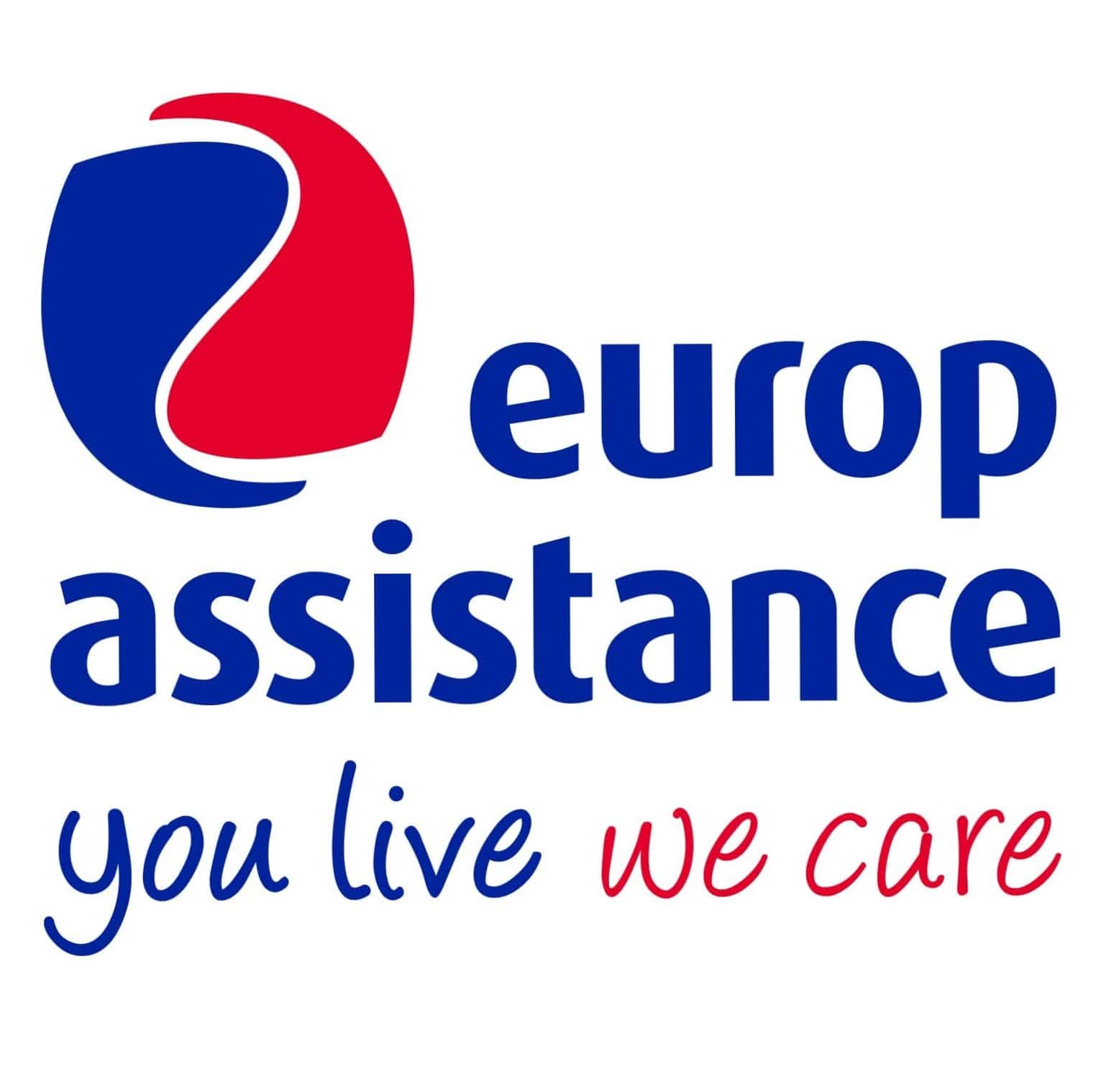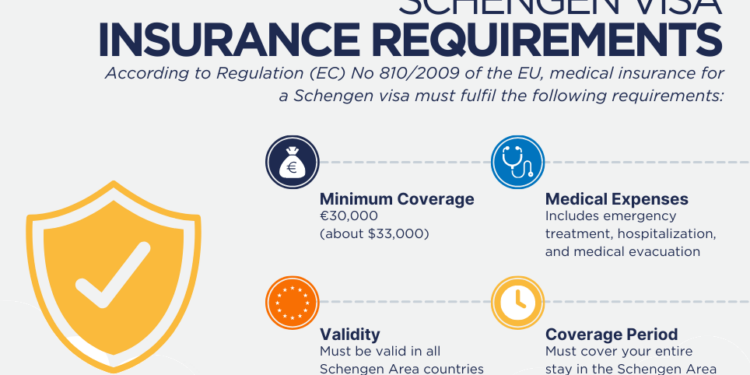Europ Assistance SchengenAssistance in the event of illness or injury: Up to € 30,000No deductibleCoverage area: Covers trips in the Schengen areaCost: starting from €3 per day AXA SilverCoverage: medical expenses abroad up to EUR30,000Cost: Starting from EUR 4.5 per day, for a 7-day tripDeductible: from EUR 30 to EUR 50
AXA SilverCoverage: medical expenses abroad up to EUR30,000Cost: Starting from EUR 4.5 per day, for a 7-day tripDeductible: from EUR 30 to EUR 50  Mutuaide BasicCoverage: Medical expenses abroad up to EUR 30,000Coverage Area: Worldwide Cost: Starting from EUR 3.00 per day for a 10-day tripDeductible: €0Validity: 1 TripSports (search and rescue costs)
Mutuaide BasicCoverage: Medical expenses abroad up to EUR 30,000Coverage Area: Worldwide Cost: Starting from EUR 3.00 per day for a 10-day tripDeductible: €0Validity: 1 TripSports (search and rescue costs) Allianz SerenityCoverage for medical expenses up to EUR 30,000Cost: Starting from EUR 7 per day, for a 7-day tripDeductible: from EUR 30 to EUR 100Luggage insuranceSports (search and rescue costs)
Allianz SerenityCoverage for medical expenses up to EUR 30,000Cost: Starting from EUR 7 per day, for a 7-day tripDeductible: from EUR 30 to EUR 100Luggage insuranceSports (search and rescue costs) Europ Assistance Schengen PlusAssistance in the event of illness or injury: Up to €60,000Coverage area: Covers trips in the Schengen area plus Bulgaria, Cyprus, Ireland and RomaniaNo deductibleCost: starting from €5 per dayReturn/relocation and lodging expenses of a companion
Europ Assistance Schengen PlusAssistance in the event of illness or injury: Up to €60,000Coverage area: Covers trips in the Schengen area plus Bulgaria, Cyprus, Ireland and RomaniaNo deductibleCost: starting from €5 per dayReturn/relocation and lodging expenses of a companion AXA GoldCoverage: Medical expenses abroad up to EUR 50,000Coverage Area: Schengen Area, plus French overseas territories, Bulgaria, Cyprus, Ireland, Romania, and the UK.Cost: Starting from EUR 6.35 per day for a 7-day trip.Deductible: from EUR 30 to EUR 50 Air ticket cancellation & Luggage insuranceSports (search and rescue costs)Terrorism & Covid-19
AXA GoldCoverage: Medical expenses abroad up to EUR 50,000Coverage Area: Schengen Area, plus French overseas territories, Bulgaria, Cyprus, Ireland, Romania, and the UK.Cost: Starting from EUR 6.35 per day for a 7-day trip.Deductible: from EUR 30 to EUR 50 Air ticket cancellation & Luggage insuranceSports (search and rescue costs)Terrorism & Covid-19 AXA PlatinumCoverage: Medical expenses abroad up to EUR 100,000Coverage Area: Schengen Area, plus French overseas territories, Bulgaria, Cyprus, Ireland, Romania, and the UK.Cost: Starting from EUR 3.75 per day for a 120-day tripDeductible: from EUR 30 to EUR 50 Air ticket cancellation & Luggage insuranceSports (search and rescue costs)Terrorism & Covid-19Annual – Max. 120 days per tripDoes the Insurance Policy Need to Cover All Schengen Area Countries?
AXA PlatinumCoverage: Medical expenses abroad up to EUR 100,000Coverage Area: Schengen Area, plus French overseas territories, Bulgaria, Cyprus, Ireland, Romania, and the UK.Cost: Starting from EUR 3.75 per day for a 120-day tripDeductible: from EUR 30 to EUR 50 Air ticket cancellation & Luggage insuranceSports (search and rescue costs)Terrorism & Covid-19Annual – Max. 120 days per tripDoes the Insurance Policy Need to Cover All Schengen Area Countries?
Yes, a travel health insurance policy should cover all member states: Austria, Belgium, Bulgaria, Croatia, Czech Republic, Denmark, Estonia, Finland, France, Germany, Greece, Hungary, Iceland, Italy, Latvia, Liechtenstein, Lithuania, Luxembourg, Malta, Netherlands, Norway, Poland, Portugal, Romania, Slovakia, Slovenia, Spain, Sweden and Switzerland.
How Much Does Schengen Insurance Cost?
Schengen travel insurance can be very affordable, with prices for a one-week policy as low as €18 – €22. However, the cost of Schengen insurance ultimately depends on several factors—your age, how much coverage you want, the trip duration, and the specific insurance company.
Here are the travel insurance premiums from Europ AssistanceDuration of travelSchengen
(Schengen area only)Schengen Plus
(Extended protection Schengen + EU countries)up to 7 days18 EUR28 EURup to 15 days30 EUR49 EURup to 31 days46 EUR73 EURup to 45 days56 EUR85 EURup to 63 days72 EUR99 EURup to 90 days88 EUR125 EURup to 105 days107 EUR159 EURup to 158 days165 EUR239 EURup to 365 days285 EUR429 EURFind out moreFind out moreEurope Travel Insurance for Seniors Applying for a Schengen Visa
If you want to buy travel insurance for seniors, read our article “Schengen Insurance for Senior Citizens & Pensioners“.
Do Medical Insurance Plans Cover COVID-19?
Yes, some Schengen insurance policies cover COVID-related illness, provided that when you travel, you respect the laws and regulations of your country’s government and the World Health Organization (WHO). COVID-19 insurance covers the following:
Health emergencies related to COVID-19, including medical treatment, medication, and hospitalization.PCR test (sometimes).
Expenses related to quarantine requirements, such as accommodation, are not covered.
The amount of COVID insurance coverage depends on the specific policy. For example, AXA Schengen covers your medical and repatriation costs if you fall ill with COVID-19 and “related illnesses”, whereas MondialCare covers all medical consequences of contracting COVID-19 and a positive PCR test (but not a negative one).
On the other hand, under any circumstances, some insurance companies do not cover any expenses related to epidemics or pandemics, including COVID-19.
Whether an insurance company covers COVID-19 is stated in its policy features and terms and conditions, so make sure you read the fine print carefully.
What if the embassy asks for a Schengen insurance certificate with COVID protection?
If your insurance policy includes Schengen protection, it should state so on the certificate. If your insurance certificate does not explicitly state that you have COVID protection, you could ask your insurer to provide you with one that does.
Can I extend my travel insurance policy if I need to prolong my trip due to COVID-19 travel restrictions?
If your trip in Europe is extended due to COVID travel bans, and your travel insurance is about to expire, you can purchase a new insurance policy or renew your existing one. You will, of course, have to pay an additional charge. Check with your travel insurance company regarding their rules on the extension or renewal of a policy.
If I need to prolong my trip due to a closure of the airport or due to official travel restrictions, can I extend my insurance policy?
Each travel insurance company applies its own rules. Contact their customer service/support team to know the details. It should be possible to either get a refund for your current policy or be able to extend your current travel policy.
What Does Europe Insurance Policy Usually Cover?
A good travel insurance policy for the EU/Schengen area should cover the following costs:
Medical emergency (accident or sickness) while in the Schengen AreaEmergency evacuationRepatriation of remainsReturn of a minorAccidental death, injury or disablement benefitOverseas funeral expensesUsually, the insurers cover pregnancy-related expenses, if the travel occurs during the first trimester. After that, insurance coverage varies from insurer to insurer.What Is Presumably Excluded or Optional In a Common European Travel Insurance Policy?
Every travel insurance company is different; however, there are ones that offer to cover additional costs if necessary. If not, additional insurance must be purchased to cover explicit costs like:
Preexisting conditions (e.g. Asthma, diabetes)Sports with an element of risk (e.g. skiing, scuba diving)Travel to high-risk countries (e.g. Due to war, natural disasters or acts of terrorism)Acute onset of pre-existing conditions – It means a sudden and unexpected occurrence of pre-existing medical conditions without any prior warning from a health care professional. If you have pre-existing conditions, get this coverage to protect you against any emergency that arises due to pre-existing conditions despite taking care.How To Find Cheap Travel Insurance for Europe?
Finding the right cheap travel visa insurance for Europe calls for individual and more in-depth research. This means having to search online for the appropriate medical insurance policy. It is recommended that you compare products and companies before you decide which company has the cheapest and the best travel insurance for Europe.
Do not be confused about the price, as not all low-cost travel insurance policies contain low-quality services, and not all expensive insurance plans offer high-quality service. That is why the safest way to choose amongst boundless offers of medical insurance companies properly is by choosing not the cheapest travel insurance but the policy which covers all the areas as required by the Schengen visa application requirements.
What Is Travel Medical Insurance?
Travel health insurance covers medical expenses in case of an injury or unexpected sickness that arises during your trip. Whether you need health insurance when travelling to a foreign country depends on the desired destination and your ability to cover any health care needs during your stay.
However, travel insurance is a must for most people, especially the elderly, who have predetermined medical conditions and are bound to constant therapy or, most importantly, if the traveller’s destination is an underdeveloped region.
Besides medical expenses, travel insurance will cover different losses suffered during the trip, including one’s own country and internationally. Unexpected happenings like lost luggage, cancellation of your flight at the last moment, travel agency or accommodation bankruptcy will ruin your trip. Therefore, a travel insurance policy is designed to provide cancellation insurance by means of a full or partial refund.
Whether you are travelling once or several times during a short period of time, the insurance policy will match and cover the exact number of days spent in the international territory, in this case, the Schengen territory, with the price ranging accordingly.
What Are the Common Restrictions and Limitations?As previously mentioned, travel insurance companies don’t cover preexisting conditions internationally. If you have a condition before your departure to Europe, you’ve consulted a doctor and are already on treatment, and you’ve decided to travel out of the country, in this case, you are not prone to any medical cost alleviations via your insurer. However, if one is proclaimed fit to travel having the condition under control, most commonly, travel insurance is ought to cover an unexpected emergency related to the condition when travelling in an international domain, an acute onset of the preexisting condition.Sports – Participation in high-risk activities such as extreme sports, e.g., scuba diving, skydiving, etc., can be excluded.War – Policies may exclude coverage for injuries caused by war when travelling to an endangered war zone.Duration – Many policies specify a time limit for coverage (e.g., 60 days), and the costs differ accordingly.Suicide in an international or domestic domain is excluded from any insurance policy for self-inflicted injuries.In the case of any substance abuse, drugs or alcohol, domestic or international, the medical expenses won’t be covered by your insurance policy.
For more information about European visa requirements and the application process for US, UK, Canadian and Australian residents, please read the following articles:
More Travel Insurance Guides
France Visa Insurance, Spain Visa Insurance, Germany Visa Insurance, Italy Visa Insurance, Switzerland Visa Insurance, Travel Insurance by Europ Assistance, Schengen Travel Insurance UK, Greece Visa Insurance, Portugal Visa Insurance, Netherlands Visa Insurance, Schengen visa insurance from Singapore
FAQIs Travel Health Insurance Mandatory for Visa-Free Third-Country Nationals Entering the Schengen Area?
Travel medical insurance is not mandatory for visa-free third-country nationals. Nonetheless, getting one is highly recommended if you travel to the Schengen countries.
Can I Obtain a Schengen Visa Without Travel Insurance?
Every person applying for a Schengen visa to visit Europe must hold a valid Schengen travel insurance policy regardless of the reason for travel (tourism, leisure, business, studies or other).
Does a Family Member of an EU/EEA National Need Travel Insurance?
Under certain conditions specified in Directive 2004/38/EC of the European Parliament, immediate family members of EU/EEA nationals might not require travel insurance when applying for a Schengen visa. These conditions generally include:
Accompanying or Joining: The family member must either accompany the EU/EEA national on the trip or be planning to join them in the Schengen Area.Financial Dependency: The family member might need to be financially dependent on the EU/EEA national.Specific Relationships: Exemptions typically apply to immediate family members such as spouses, registered partners, children under 21 (or older if dependent), or dependent parents.Should We Choose Travel Insurance With a 0 Eur Deductible?
It is not a strict requirement to get a Schengen travel visa insurance with 0 EUR deductible; however, we strongly suggest that you get one without a deductible to be 100% sure that your Schengen visa application will not be rejected because of the travel insurance policy.
Are Diplomatic Passport Holders Exempt From the Requirement of Travel Insurance?
Yes, holders of diplomatic passports are exempt from the mandatory travel medical insurance requirement. They are not required to provide proof of insurance when travelling to the Schengen Area.
Is Travel Medical Insurance Mandatory for Seafarers Traveling to the Schengen Area?
No, travel medical insurance is not mandatory for seafarers travelling to the Schengen Area. Seafarers are exempt from the requirement of Schengen travel insurance based on their professional situation. Their existing medical insurance coverage, obtained due to their work activities, is considered adequate and fulfils the insurance requirement for their stay in the Schengen Area.
What if I’m Applying for a Schengen Multiple-Entry Visa?
According to Regulation (EU) 2019/1155 of the European Parliament and of the Council of 20 June 2019 amending Regulation (EC) No 810/2009, if you are applying for a Schengen multiple-entry visa, you must demonstrate that you have sufficient and valid travel medical insurance that covers the duration of your initial planned visit.
However, it’s important to note that you should maintain valid insurance whenever you plan to travel to the Schengen area in the future.
Did you find this page helpful?
Yes No
Source link : https://schengenvisainfo.eu/schengen-visa-insurance/
Author :
Publish date : 2024-06-04 18:02:56
Copyright for syndicated content belongs to the linked Source.



